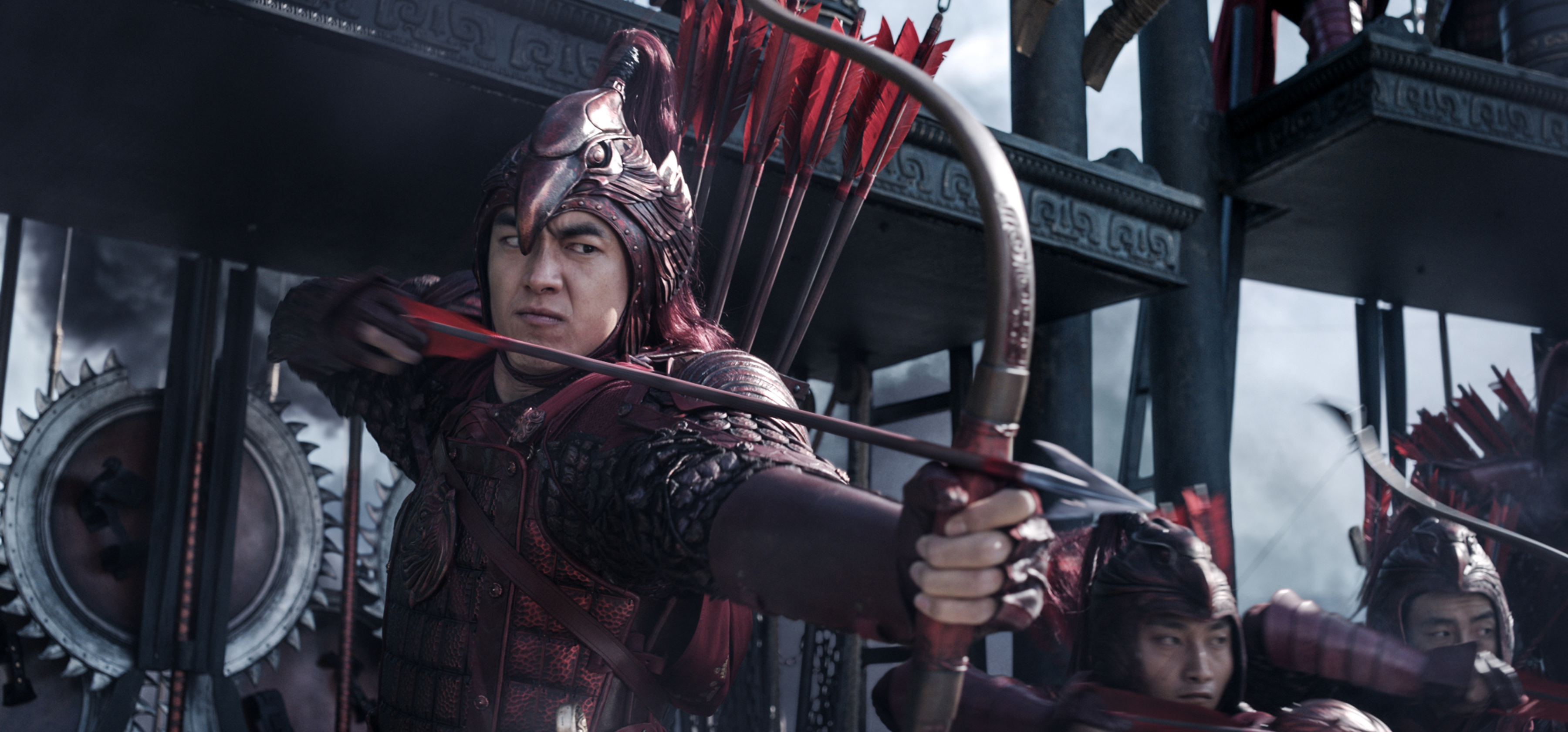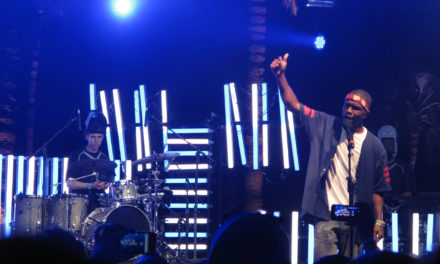The spectre of the “overseas market” has loomed over Hollywood the past decade like an ominous ghoul, but has never been so apparent as in the last few years. From beating dead-horse action franchises like The Terminator or Die Hard series purely for the profitability in Asian markets to adding foreign actors to films for broader appeal, it’s clear that Hollywood values its foreign audiences almost as much as, if not sometimes more than, American viewers. The Great Wall feels like an odd exercise in market pandering, presenting a tired Hollywood story meshed with Chinese culture, creating an interesting hybrid of East-meets-West blockbuster filmmaking.
Our heroes, brothers William (Matt Damon) and Tovar (Pedro Pascal), are Spanish mercenaries traveling through China in search of the mythical “black powder” (gunpowder) while being chased by bandit hordes. They make their way to the Great Wall, where they are captured by the Nameless Order. The brothers quickly learn that this is an army of thousands of monsters that attack China every 60 years. William and Tovar are forced to join forces with Commander Lin (Jin Tiang) to stop the attack and save China from apocalypse.
As ambitious as the central concept of The Great Wall is, the film never quite settles into a comfortable groove. In many ways, it feels like a spiritual successor to 2007’s Korean-American production Dragon Wars: D-War. It throws so many elements at the screen, constantly upping the ante with ludicrous visuals and action beats. These feeble attempts at weighty melodrama and world-building clash heavily with the mindless action sequences breaking up the obligatory plotting.
Director Zhang Yimou has a knack for impressive visuals, shown by the sweeping, wide shots of desert landscapes and war-torn valleys. Yimou knows audiences want to see every dollar on-screen, so he’s keen to show you the film’s budget. Furthermore, the scenes are drenched in color, from the bright reds and blues of the Nameless Order’s armor to the murky greens and blacks of blighted valleys. Unfortunately, Yimou failed to wring something remotely interesting out of this unremarkable script. We’ve seen the same “unlikely hero rising to the occasion” story so many times that even the transposition of this story to post-classical China isn’t much to write home about.
The casting of Matt Damon as the lead in a film with a predominantly Chinese cast raised issues of whitewashing and white savior tropes; fortunately the film doesn’t quite go that far in making him a Mary Sue. When he’s not channeling his inner Connor MacLeod, Damon still gets many of the film’s best action moments and delivers the funniest one-liners. However, the real highlight of the film is Jin Tiang as Yin. She serves as William’s moral compass, motivating him to fight alongside her. Tiang dives off walls and spears monsters while wearing what can only be described as a rejected Mortal Kombat costume. In fact, the only weak link is Willem DaFoe, who is completely wasted in a minor supporting role as a mercenary in the fortress. While his casting probably gave the film more cache in the American market, his character only spouts exposition and exits the film before the real action even begins. It’s a complete waste to use such a great actor for such an insignificant part.
When it comes to exhilarating action filmmaking, The Great Wall might just take the cake for some of the most off-the-wall, insane moments I’ve seen recently. The laws of physics are clearly ignored as characters bungee-jump off the Great Wall or swing from pagoda towers while harpooning monsters hundreds of feet away. I wish I remembered to leave my brain at the door so I would have been in more child-like awe of what I was seeing instead of vainly trying to make sense of it all. The lesson here is obvious: don’t think about it, just accept what’s happening and have a good time with it.
For what it is, The Great Wall offers an interesting diversion in a time of year when high-concept genre films are rather sparse. It’s genre filmmaking at its most gluttonous, embracing crowd-pleasing spectacle and mindless entertainment to the nth degree. The Great Wall wears its fusion of cultures proudly, and while it doesn’t have the skill to balance Western and Eastern sensibilities, it manages to entertain in spite of itself.
Grade: B-
Film Critic Vikrant Nallaparaju is a College Sophomore from Houston, Texas studying Anthropology and Human Biology. This is his second year writing for the wheel and the first serving as film a critic. When it comes to movies, he can usually be found watching the films of Joe Dante and lamenting the fall of John Carpenter.






